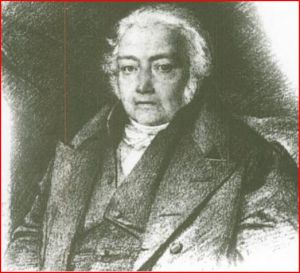I meddle not with the dispute respecting conversion, whether, and in what sense, necessary in all Christians. It is sufficient for my purpose, that a very large number of men, even in Christian countries, need to be converted, and that not a few, I trust, have been. The tenet becomes fanatical and dangerous, only when rare and extraordinary exceptions are made to be the general rule; – when what was vouchsafed to the apostle of the Gentiles by especial grace, and for an especial purpose, namely a conversion begun and completed in the same moment, is demanded or expected of all men, as a necessary sign and pledge of their election. (Coleridge, Aids to Reflection, Introductory Aphorisms, XXVIII)
Samuel Taylor Coleridge’s religious writing has always been a bigger draw for me than his poetry. But Aids to Reflection is not an easy read; some of Coleridge’s concerns are dated, his style is ornate, with his sentences given to long dependent clauses. Why do I bother?
I have a peculiar brand of liberal Christianity which still has a God and a Christ, still defends a supernaturalist view of the cosmos – but cannot find a liberal church or a secular university that doesn’t demean this God and this Christ and this cosmos. Consequently I have only a very limited contemporary intellectual mileu and am, by all accounts, an inveterate Anachronist. My intellectual passion for over 30 years has been dominated by philosophers, theologians, preachers, writers, and poets largely born before 1900 (although I enjoy a handful born later, and a few of the oldies, even, were writing past the 1960s).
Why so few favorites born after 1900? Well ‘the times’ change, they say. In our secular age, fewer and fewer really fit human minds are finding the Christian churches and the life of religion and theology to be a lure to their tremendous talents. Not that I am a talent, but only that I know a good mind when I see one. My father-in-law, a physician, remarked recently that he has seen evidence of a similar ‘brain drain’ in medicine – I mean of the tip-top minds, the epoch-makers, he suggested that too many who 100 years ago would have seen medicine as the avenue of greatest idealism and service had been attracted (or distracted) into careers that appeared to offer the latest salaries and different fascinations.
So I go back to the age when there were still really top minds able to believe in God and push the envelope of a constructive theology. It’s that simple. And it was decades ago that I found in the stacks of a great old seminary library a book by Scottish professor John Tulloch, Movements of Religious Thought in Britain during the Nineteenth Century (1885). In this precious old work I discovered to my surprise many inquiring religious minds which suited me both spiritually and intellectually in a remarkable way – and most of them were expressing a significant debt to Coleridge.
Awakened by a cock-crow (a sermon, a calamity, a sickbed, or a providential escape) the Christian pilgrim sets out in the morning twilight, while yet the truth is below the horizon. Certain necessary consequences of his past life and his present undertaking will be seen by the refraction of its light: more will be apprehended and conjectured. The phantasms, that had predominated during the hours of darkness, are still busy. Though they no longer present themselves as distinct forms, they yet remain as formative notions in the pilgrim’s soul, unconscious of its own activity and over-mastered by its own workmanship. (XXIX)


This is some pretty good research, and that last paragraph is so detailed and alive with introspection.
Everyone knows of Coleridge’s popular work, so to find someone sifting through his other works is impressive.
Coleridge is massive, huge. And yet known to our day mostly as the poet and ‘substance abuser’ It’s easy to find books that miss the real point with his life.
Thanks for writing. I plan to feature here later some of those brilliant ones who were on the brink of crisis in the mid-nineteenth before they read Coleridge. He helped them see God through the crash of man-made systems, and they gave back to philosophy and theology in ways we desparately needed (and still need), in my view.
Pingback: Lost Christianity – 1. The Early Oriel School « Next Theology
Pingback: The Soul Evolves « Evolutionary Philosophy
How are transcendentalist characteristics shown in the first excerpt? ( “I meddle not….”)
Anna, I featured the two quotes (which challenge a view of conversion associated with a leading doctrine of Assurance) to highlight the impulse to freedom in theology which was sponsorred by Coleridge, and which inspired so many in England and America who had become ‘boxed in’ by Calvinist ‘orthodoxy’ almost to the level of being driven from religion altogether.
As for transcendentalist thought, Coleridge is a kind of early English Kantian and a proto-transcendentalist as far as the thinking of Emerson goes – Emerson was reading Aids to Reflection as early as 1826 I think, but the Americans took transcendentalism to levels unforseen by Coleridge.
Thanks for writing.